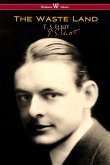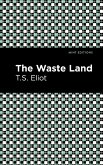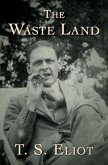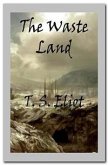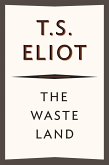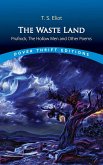I attempted to both copy his style in some places, and then to radically oppose it in others. I find that, whether I'm going with the author of "Wasteland," or going against him, still his "mood stamp" is all over this experimental piece. The goal of this experiment is to bring the reader into my life and to see the conflicts I live here in this time and place, and also to simultaneously attempt to speak it with an Eliot-like voice, (except where I disagree with, or have moments of not liking his voice, at which point I often go into a mode of outright mockery.) Putting these odd parameters around this project made me make a lot of decisions at each juncture. I'd read a bit of Eliot, then imagine him in my shoes a half century later, and see what sort of "compromise" writing I could come up which would ideally come half way between his way of expressing things and mine.
Coming from the San Francisco confessional school of poetry, mostly influenced by the 1990s style, I appear to the millennial reader after my time, or the more aged baby boomers before my time, as too negative and severe. Wildly, at the height of the time in which my style was more popular, audiences actually laughed all through works like this. But that has apparently all changed. In these times there is somehow a struggle with irony, parody, and satire, and a kind of humorlessness about cautiousness surrounding poetry. A kind of innocent and ultra-earnest literalism has set over the poetry establishment. This change of prevailing style took me out of the performing circles which have been purged of edginess, the former edginess now being replaced by a kind of obsession for safety and certainty, an atmosphere where the goal seems to be the banishment of uncertainty.
If there is any prevailing religion now, it would neither be Christianity, nor Islam, (nor does Atheism prevail now). Instead certainty-ism is the all-consuming faith, the obsession with certainty merely undergoing a change of costume once in a while. This work, if one is looking for certainty, won't help your quest much. The work is admittedly meant to make you a little nervous and to disturb the complacent and controlled and orthodox messages now disseminated by virtually every major school of thought, whether political, religious, literary or romantic. In spite of all these disclaimers, I hope a few of you will make this poetic journey with me, and, if luck permits it, have a few laughs along the way.
After writing the work in poetic verse form, I then folded the formerly individual lines back into regular prose paragraphs, not only because my poetry verges on prose, but also because I like the way the paragraphs flowed in ebook formats.
Dieser Download kann aus rechtlichen Gründen nur mit Rechnungsadresse in A, B, CY, CZ, D, DK, EW, E, FIN, F, GR, H, IRL, I, LT, L, LR, M, NL, PL, P, R, S, SLO, SK ausgeliefert werden.



